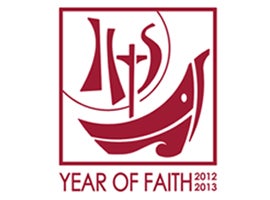It comes as a shock at a certain point where you realize, no matter how much you love these kids, you can’t do it by yourself. That this job of keeping our children safe, and teaching them well, is something we can only do together, with the help of friends and neighbors, the help of a community, and the help of a nation. And in that way, we come to realize that we bear a responsibility for every child because we’re counting on everybody else to help look after ours; that we’re all parents; that they’re all our children. This is our first task — caring for our children. It’s our first job. If we don’t get that right, we don’t get anything right. That’s how, as a society, we will be judged. And by that measure, can we truly say, as a nation, that we are meeting our obligations? Can we honestly say that we’re doing enough to keep our children — all of them — safe from harm? [emphasis added]
This is, of course, a fundamental truth. The whole point of "culture" is to raise children into virtuous, competent adults, and to reinforce by the continuous formation of adults the same virtues being passed on, in a manner consistent enough across time and space to be a shared and unifying vision of the Good. Successful cultures are successful, stable, and enduring exactly in these terms. People come to share this commitment to the Good that is envisioned, because it is demonstrably a Good, and because it tests positively against human experience.
But in this speech, Obama moves too easily from truth to truism, and thence to misdirection.
The truism is that threats of violence against our children come from outside, from disordered elements of the culture (like mental illness, or the apparent randomness of many forms of violence):
We gather here in memory of twenty beautiful children and six remarkable adults. They lost their lives in a school that could have been any school; in a quiet town full of good and decent people that could be any town in America.... As these difficult days have unfolded, you’ve also inspired us with stories of strength and resolve and sacrifice. We know that when danger arrived in the halls of Sandy Hook Elementary, the school’s staff did not flinch, they did not hesitate....
This dichotomy is partly true, at the level of personal experience, and yet wholly false, morally. Obama alludes to this falsity when he says:
But if that's true, then there's not an "us" who try to protect children from violence and raise them in virtue, and a "them" who try the opposite. Those who harm our more vulnerable members are also "us." But from the ambiguity of the superficial truism, the speech is able to misdirect:
In the coming weeks, I will use whatever power this office holds to engage my fellow citizens — from law enforcement to mental health professionals to parents and educators — in an effort aimed at preventing more tragedies like this. Because what choice do we have? We can’t accept events like this as routine. Are we really prepared to say that we’re powerless in the face of such carnage, that the politics are too hard? Are we prepared to say that such violence visited on our children year after year after year is somehow the price of our freedom?
The misdirection here is actually three-fold.
First, there is the straw man of opposing "freedom" with "preventing more tragedies like this." Politically, this is a false dichotomy because freedom - true freedom, virtuous freedom, not license (as "freedom" is often cast) - is what makes a culture strong and resilient. Only a society characterized by humility, fortitude, and prudence is capable of reining in the impulses to violent brutality, without resorting to strict tyranny. Morally, this is a straw man because moral freedom is essential to love, and to the meaningfulness. Without moral freedom, life just is; neither good nor evil, but simply to be endured.
Second, there is the implied "big government" thinking, that only (or perhaps, best) the federal government is equipped to deal effectively with this problem. This is typical of this president's work (bailouts, Obamacare, etc). This is misdirection in this context to the extent that it belies the need for vigorous subsidiarity in making and enforcing good laws, and so forth. (The whole question of proper care for the mentally ill can be hooked onto this point.)
Third, and most blatantly, there is the elephant in the room of abortion, and indeed of the whole contraceptive mentality of behavior without natural consequence. Mr. Obama said, "Can we honestly say that we’re doing enough to keep our children — all of them — safe from harm?" Abortion is the most grievous form of violence visited upon our children - in scale (roughly 3000 children murdered daily), in social damage (emotional consequences, lives and relationships gravely harmed, etc), and in moral damage (abortion justifies other grave evils, because if this person's humanity can be denied, then so too can this one's). Abortion is a fatal cancer at the heart of our culture.
A society that teaches people that actions don't have natural consequences is doomed. Likewise, a society that teaches that some people aren't really human. A healthy society, by contrast, teaches natural virtue, respect for human dignity regardless of "utility" or circumstances, and the truth that love requires self-sacrifice. A society that doesn't "accept events like this as routine" is one that also condemns abortion, adultery, promiscuity, infidelity; that also upholds chastity, the sanctity of marriage, and the high dignity of the vocation to parenthood. Hence my opening comment about fundamental hypocrisy. It is viciously hypocritical to condemn violence against children in a school, and to propose sweeping societal changes to counter it, while also promoting systematic, devastating violence against children in the womb, and resisting efforts to counter it.











